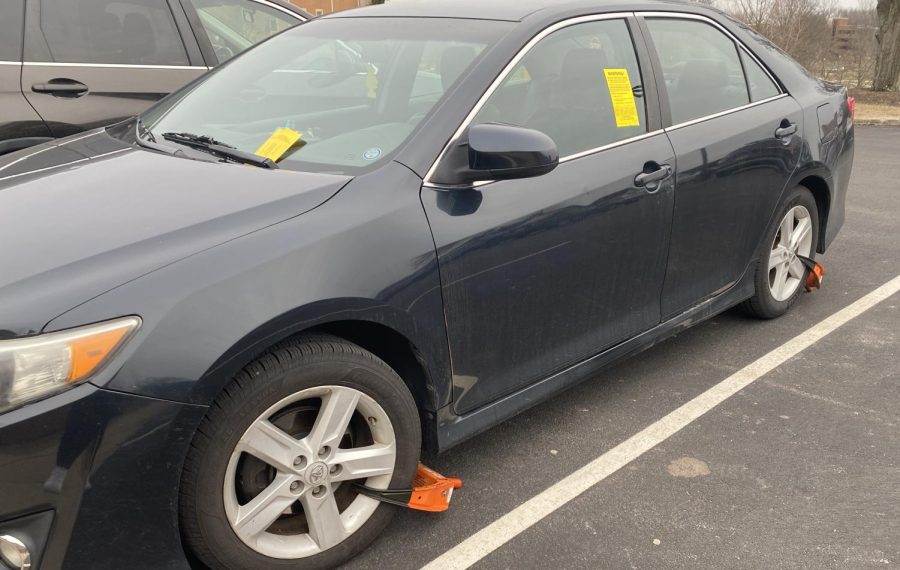Parking and Transit Services made more than $700,000 from fines in the 2022-2023 academic year, according to figures requested by KentWired.
While there are just under 10,000 student permits for the Kent campus, the $703,144.99 in revenue came from 32,091 tickets.
“That’s really high,” said Lucas Pollock, a fourth-year student at Kent State. “A lot of people do park where they’re not supposed to, but 30,000 in one school year seems like a very large amount of people doing that.”
Larry Emling, manager of Parking Services, attributed those numbers to what he called “chronic offenders,” students the department issues as many as 40 tickets during their time at Kent.
Tickets are issued when a car is parked illegally or without an appropriate permit. According to the department’s website, fines increase with the number of tickets issued for an individual license plate each school year – $20 for the first two tickets, $40 for the third through eighth and $55 for the ninth and over. Fines for displaying a stolen, lost or counterfeit permit or parking in a handicap space cost $100.
A $10 late fee is added to any unpaid ticket after seven days, and after ten days, parking services transfers an unpaid fine to the bursar’s office.
A license plate with nine tickets or more is deemed a “frequent violator” and is subject to booting or towing. In these instances, a slip is placed on the car’s window prior to booting, notifying the owner of its status.
But the department also has a knack for forgiveness, Emling said. The first ticket for every license plate is voided, and 10% of tickets are appealed each year. The department can remotely check meter times and has access to security cameras for ticket disputes.
“You’re not going to find most other schools or municipalities that are that liberal in voiding tickets,” he said.
About a dozen student enforcement staff patrol the campus lots 24 hours a day. Each student has a specific zone, and after 5:00 p.m., two to three students patrol all of campus. Many students have come to recognize their presence on campus.
“You have to be kind of thick skinned, especially with what we do,” Emling said. “You’re going to write tickets on cars where people make nasty comments to you or give you some hand gestures.”
Pollock questioned the fairness of enforcement staff and said he has seen parking services possibly waiting outside lots so they can issue tickets.
Amid concerns over parking enforcement, Emling assured the department does not overpolice lots.
“If we went a whole day, nobody parked
illegally and we didn’t write a ticket – that’s a great day,” he said. “We don’t need our fine revenue to meet our operating budget.”
The department’s annual operating cost neared $2 million last year, according to Emling. Four revenue streams contribute to funding: fines, permits, lot fees and meter machines. Permits – which are mandatory for employees and students with cars on campus – make up the bulk of the funds. The cost for a permit per academic year starts at $160 and increases to $232, according to the online permit portal.
Ensuring permit holders have space to park is the primary driver behind ticketing, Emling said.
“It’s intended to provide order to the campus,” he said. “If people weren’t assigned lots, everybody’s going to go to the closest lot and then they’re going to complain there’s no space.”
But Pollock said he still has difficulty trying to find a space to park.
In an email response, Emling said the Kent campus has approximately 7,000 parking spaces available to students – which is less than the number of passes sold.
Outside of parking enforcement, the department also handles snow removal and lot maintenance. This includes constructing catch basins, water retention areas, sidewalks and emergency blue lights on campus.
“Any money that remains goes back into the parking lots in one form or another for improvements or enhancements or expansions,” Emling said.
Alton Northup is a staff reporter. Contact him at [email protected].








